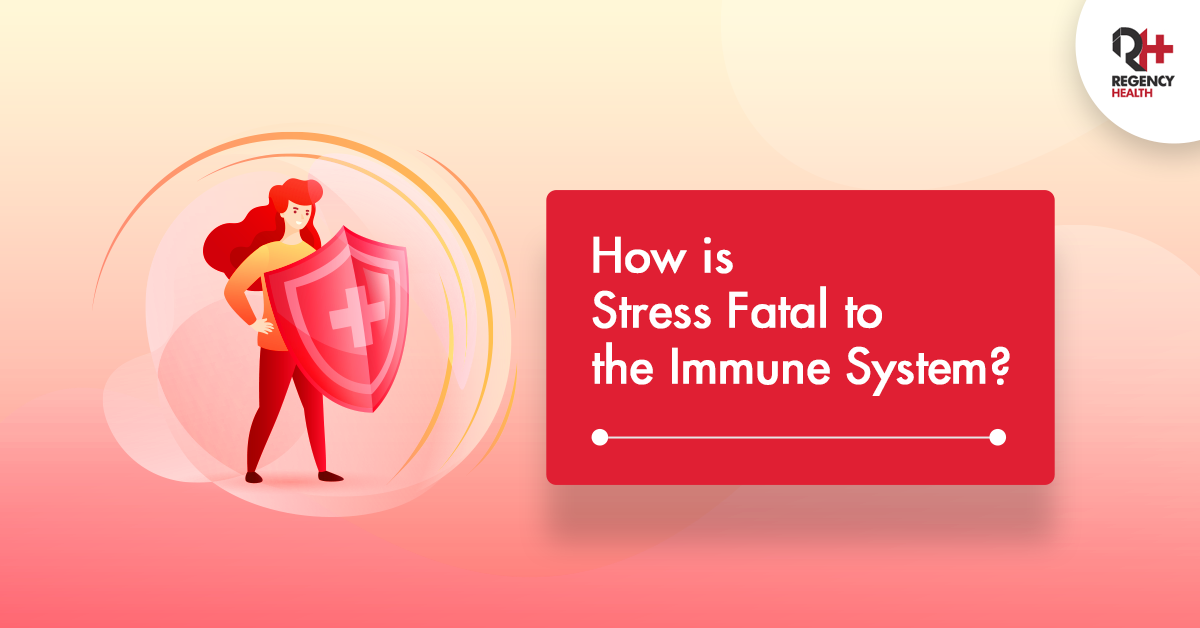How is Stress Fatal to the Immune System?

It is true when they say that the state of mind affects one’s state of health.
The relationship between stress and illness is not a simple one, but there is a connection. The accumulated stresses of everyday life can damage your health in irreversible ways. These can be from early aging to heart problems to long-term disability. When we’re stressed, the immune system’s ability to fight off antigens is reduced. That is why anyone becomes more susceptible to infections.
Not all stress has a negative effect. When the body tolerates stress and uses it to overcome lethargy or enhance performance, the stress is positive, healthy, and challenging. Stress is negative when it exceeds our ability to cope, fatigues body systems, and causes behavioral or physical problems. Studies find that it is related to changes in both the numbers of white blood cells in circulation and the number of antibodies in the blood. Moreover, stress is associated with changes in the functioning of immune cells. It can also have an indirect effect on the immune system as a person may use unhealthy behavioral coping strategies to reduce their stress, such as drinking and smoking.
How is Stress Affecting You?
The long-term activation of the stress-response system and the overexposure to cortisol and other stress hormones that follow can disrupt almost all your body’s processes. This puts you at increased risk of many health problems, including:
- Anxiety and Headaches
- Depression and Sleep Problems: Stress can be the beginning of depression and bad mental health
- Digestive problems: During stress, digestion is inhibited. After stressing digestive activity increases. This may affect the health of the digestive system and cause ulcers. Adrenaline released during a stress response may also cause ulcers. Stress also alters the acid concentration in the stomach, which can lead to peptic ulcers, stress ulcers, or ulcerative colitis.
- Heart and other diseases: Stress damages your heart because stress hormones increase your heart rate and constrict your blood vessels. This forces your heart to work harder and increases your blood pressure. Stress increases the risk for diabetes mellitus, especially in overweight individuals, since psychological stress alters insulin needs.
- Weight gain: Chronic stress can also lead to plaque buildup in the arteries (atherosclerosis), especially if combined with a high-fat diet and sedentary living.
- Memory and concentration impairment: High levels of stress in pregnant women may also trigger changes in their children as they grow, specifically behavioral and developmental issues.
How to Manage Stress?
- Taking periodic breaks from work to refresh yourself. Even short breaks are helpful.
- Behavior modification techniques. Changing how we act can often break habits that trigger stress reactions.
- Leading a healthy lifestyle with regular exercise and a balanced diet.
- Using meditation, controlled breathing, or yoga as a way to decompress and relax. It’s even more helpful to make such a practice a regular part of your life to protect against the negative effect of stress.
If you have stress symptoms, taking steps to manage your stress can have many health benefits. Be sure to get plenty of sleep and eat a healthy, balanced diet. Avoid tobacco, caffeine and alcohol, and the use of illegal substances.
If you or a loved one is feeling overwhelmed by stress, talk to your doctor. Many symptoms of stress can also be signs of other health problems. Your doctor can evaluate your symptoms and rule out other conditions. If stress is to blame, your doctor can recommend a therapist or counselor to help you better handle your stress. Also if you are not comfortable talking to family, Visit doctors at Regency Kanpur who specializes in this field and talk with them.

 Call-an-Ambulance
Call-an-Ambulance



